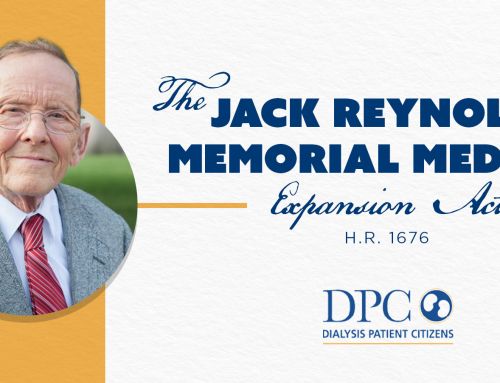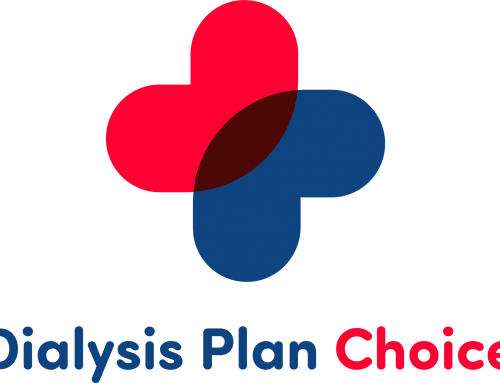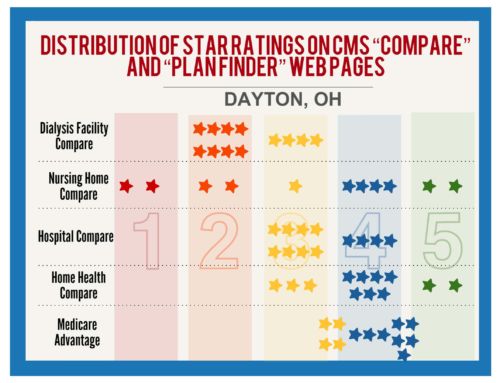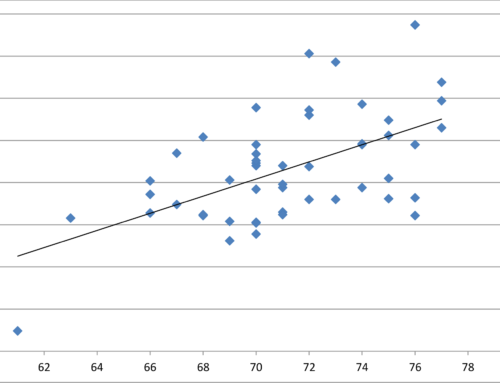Skewed geographic distribution of star ratings demonstrates program’s flaws, says Dialysis Patient Citizens
WASHINGTON, D.C. (Dec. 16, 2014) — Dialysis Patient Citizens has filed the first challenge to a CMS quality program under the Data Quality Act, contending that the agency’s Dialysis Facility Compare (DFC) star ratings methodology fails to satisfy federal requirements for objectivity and utility in presenting information to the public. The day after being served with the complaint, CMS conceded it should have conducted cognitive testing of this system on consumers, reversing a position the agency had defended for nearly four months.
“We felt this challenge was necessary in light of CMS’ continued refusal to acknowledge that its quality ratings are distorted by socio-demographic factors,” said Jackson Williams, Director of Government Affairs for Dialysis Patient Citizens. “As is the case with Medicare Advantage star ratings and the hospital readmissions penalty, a clear geographic pattern is evident: New England, the Upper Midwest and Pacific regions score the highest, and the South and Greater Appalachia score the worst. However, the pattern with DFC is more exaggerated than in other quality programs, probably because dialysis facilities draw patients from more concentrated service areas.”
The Data Quality Act, enacted in 2001, spawned guidelines governing how each federal agency compiles its data. Dialysis Patient Citizens’ complaint argues that the DFC star ratings fail the HHS Guidelines’ objectivity requirement in that they are heavily biased by the underlying population health of the area served by a dialysis facility, as evidenced by 63 percent of West Virginia dialysis facilities garnering 1- or 2-star ratings, double the national average. At the other extreme, 74 percent of Hawaii’s facilities earned 4- or 5-star ratings. West Virginia and Hawaii are generally recognized as America’s unhealthiest and healthiest state, respectively. A regression analysis found that 24 percent of the variation among states’ proportions of 1- and 2-star facilities is explained by the life expectancy of the state’s overall population.
Dialysis Patient Citizens’ complaint also argues that the DFC star ratings fail the utility requirement by contradicting the public’s understanding of what “one-star” and “two-star” symbols mean. CMS has assigned those ratings to the 30 percent of facilities that rank the lowest, while conceding that a one-star rating does not mean a patient “will receive poor care from a facility.” Dialysis Patient Citizens cites the work of health care transparency expert Judy Hibbard in arguing that CMS’ refusal to apply the “inherent meaning” that consumers associate with 1- and 2-star ratings will result in patients being alarmed rather than informed.
“The public associates 1- and 2-star ratings with unacceptably low quality – they indicate that a product or service is not worth the consumer’s time or money,” said Hrant Jamgochian, Executive Director of Dialysis Patient Citizens. “That is not the case with dialysis, because the treatment is necessary to sustain the life of a patient with kidney failure. As a result, 1- and 2-star ratings should only be given to dialysis facilities that should close their doors, not to an arbitrary 30 percent of providers.”
A third section of the complaint contends that CMS did not follow proper procedures in formulating the DFC star ratings. CMS’ Information Quality Guidelines promise that tools for public use will be developed through a “collaborative process involving providers, consumers, academicians, and policy analysts;” however, while CMS is involving stakeholders in the formulation of its Hospital Compare star ratings by convening a Technical Expert Panel (TEP) with four consumer representatives, no TEP was convened for Dialysis Facility Compare star ratings.
Read DPC’s Request for Correction complaint to CMS
Read the Request for Correction’s appendices
About Dialysis Patient Citizens
Dialysis Patient Citizens (DPC) is America’s largest patient-led organization representing dialysis patients. With a membership of more than 27,000 dialysis and pre-dialysis patients and their families, DPC’s mission is to improve the quality of life of dialysis patients by engaging policy makers, providers and the public. Through patient education, empowerment and advocacy, DPC works to increase awareness about kidney disease and promote favorable public policy.


















